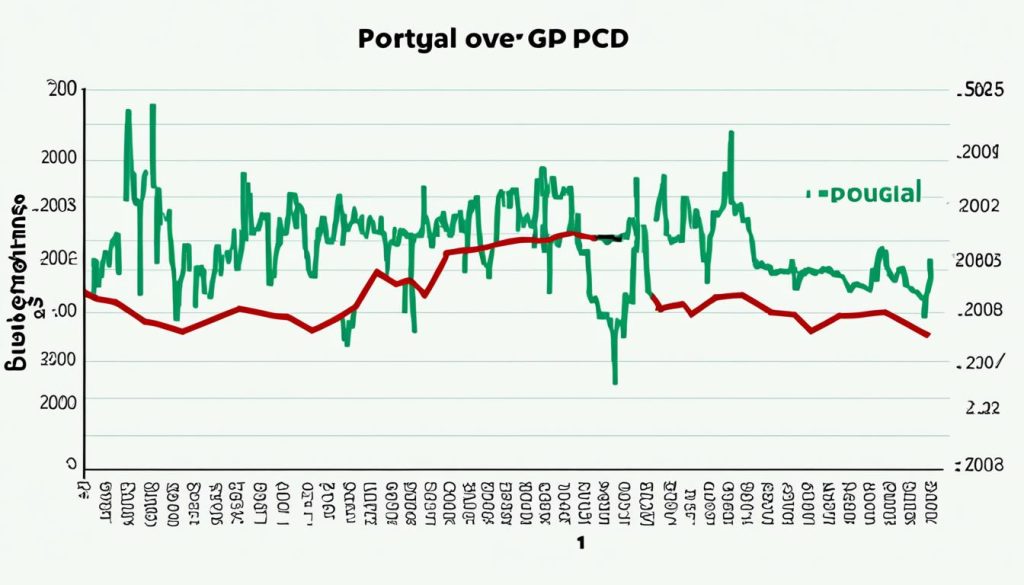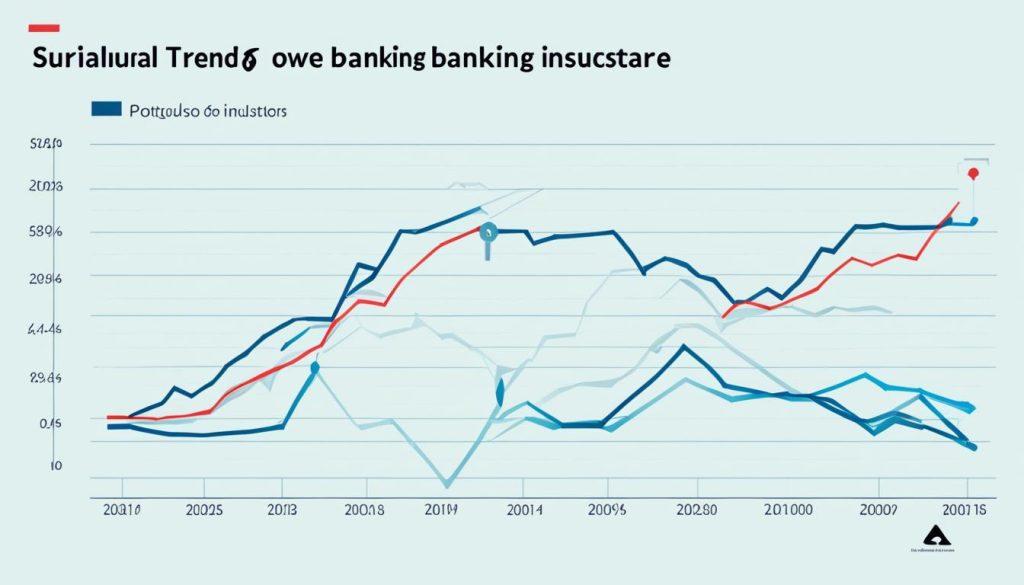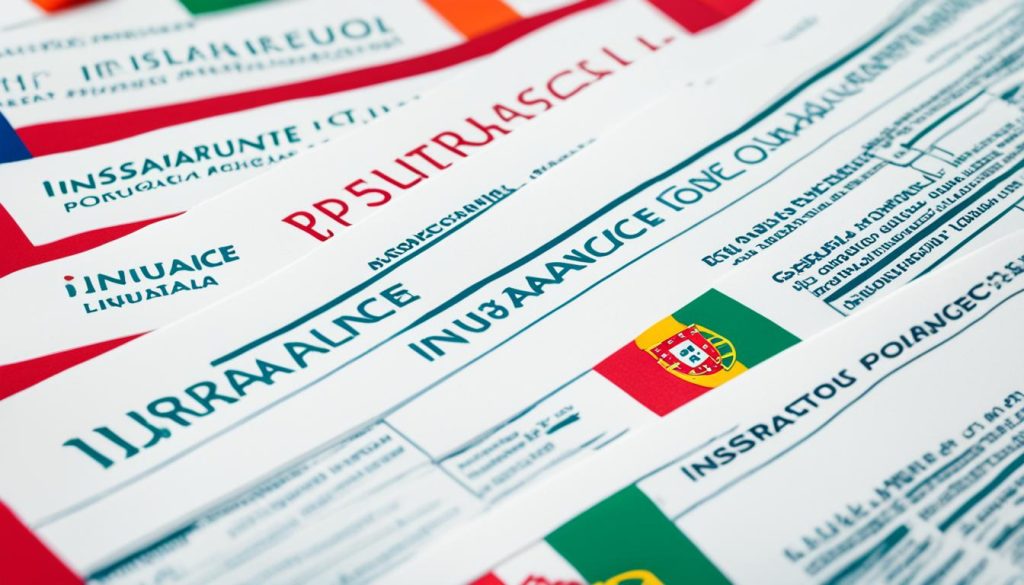Portugal has a rich history tied to global trade and is famous for its sea explorations. It is now a multicultural democracy. This country offers a welcoming climate, affordable living costs, and high English fluency levels, especially when compared to Spain. These factors attract expats, retirees, and investors.
Portugal’s financial system operates under the oversight of Banco de Portugal and the European Central Bank. This is especially true after it joined the Eurozone in 1999. The banking scene in Portugal has adapted to current needs, particularly after the 2008 financial crisis reshuffle. The banking services cater to both residents and non-residents, offering options like cryptocurrency flexibility.
One key benefit is the easy access to banking services, which draws international clients. Thanks to digital banking breakthroughs, managing money from overseas has become simpler for expats. Portugal’s banking framework is strong, supporting both personal and business dealings effectively. This results in a comprehensive expat banking guide that Portugal takes pride in.
Key Takeaways
- Portugal is a multicultural democracy with a favourable climate and living conditions.
- The Portuguese financial system is regulated by Banco de Portugal and the European Central Bank.
- The banking system has evolved post-2008 crisis, meeting modern demands.
- Accessibility to banking services for non-residents is a key advantage.
- Digital banking advancements make financial management easier for expats.
Overview of Portugal’s Economy

Portugal’s economy is a blend of industry, services, and agriculture. This mixture makes it resilient and adaptive. It builds a strong base for the country’s growth strategies. Joining the Eurozone has helped Portugal align its policies with wider European goals.
Economic Indicators
Portugal’s economy is showing strong signs of growth and stability. After joining the Eurozone, it has seen improvements in GDP growth, inflation rates, and job numbers. These changes match the trends seen across Europe.
Impact of the Euro
The Euro has had a big impact on Portugal. It has changed trade and investment in the country. By following Eurozone policies, Portugal is more in sync with Europe’s economy. The European Central Bank’s rules help guide Portugal toward steady growth and stronger finances.
Main Players in the Portuguese Banking Sector

Portugal’s banking industry includes strong local banks and prominent international ones. This mix offers an extensive range of services. Customers, both from Portugal and abroad, can find everything they need. These include retail and corporate banking, plus investment options. These services show how well the sector has bounced back since the 2008 financial crisis.
Local Banks
Key players in Portugal include Millennium BCP, Banco Montepio, and Caixa Geral de Depósitos. These banks lead the market. They provide everyday banking services and complex financial solutions. Their offerings cater to both businesses and individual clients.
International Banks
Internationally, banks like Santander Totta and Barclays enhance Portugal’s banking scene. They add a global viewpoint, bringing services that meet world standards. They also introduce advanced banking technologies.
Opening a Bank Account in Portugal
Planning to live in Portugal means you’ll need to understand its banking system. Knowing what to do makes opening a bank account straightforward. Here’s a quick guide.
Required Documentation
First up, gathering the right documents is key. You will need:
- A valid identification card or passport
- Proof of address such as a utility bill or rental contract
- The Portuguese tax number (Número de Identificação Fiscal, NIF)
Having these documents ready will speed up setting up your account. It’s crucial for a smooth start for expats and newcomers.
Process of Opening an Account
To open an account, start by picking a bank that suits your lifestyle. Then, book a meeting with a bank officer. You’ll need to fill out a form and hand over your documents.
- Choose the right bank for your needs
- Schedule an appointment with the bank
- Provide the necessary documentation
- Complete the application form
- Confirm and activate your account
Banks offer various services valuable for expats, like online payments and mobile apps. This makes opening a bank account in Portugal not just necessary, but handy too.
Banking Services Available in Portugal

The Portuguese banking sector provides a wide range of services. These are created to suit the various needs of its customers. Let’s take a detailed look at the banking services you can find in Portugal.
Retail Banking
Retail banking in Portugal looks after the everyday financial needs of the public. It includes retail banking offers like mortgages, personal loans, and savings accounts. This helps customers manage their money easily. Banks also offer online and mobile services. This makes it easy and convenient to access financial services.
Private Banking
Portugal offers private banking services for wealthy individuals. These services provide bespoke financial advice, wealth management, and exclusive solutions. They aim to help rich clients look after their wealth, organise their estates, and reach their financial ambitions.
Corporate Banking
Corporate banking in Portugal serves the financial needs of businesses, big and small. It offers asset management, customised financing, and corporate financial management. Portuguese banks have various solutions to aid companies. They help with managing daily finances and planning for future investments.
Invest an Option
The investment services in Portugal offer many investment opportunities across different sectors. Whether it’s increasing your wealth through stocks or bonds, Portuguese banks give expert advice. They offer a selection of investment products to match your financial goals and how much risk you want to take.
Portugal’s banking sector offers a rich variety of retail banking offers, private banking services, corporate financial management, and investment opportunities. It is strong and flexible, serving a broad range of customers.
Navigating Portuguese Banking Regulations

Portugal’s banking sector follows strict rules. These ensure stability and transparency. They also stick to local and European standards. Knowing these rules is key for anyone in Portugal’s banking scene.
Regulatory Bodies
Several important groups oversee banking in Portugal. The Banco de Portugal is crucial in checking banks. It makes sure they meet high standards.
The European Central Bank also plays a big role, especially for key Eurozone banks. Both bodies aim to keep the banking world strong.
Compliance Requirements
Banks in Portugal must follow many rules. These cover how loans are given and fight against money laundering. The rules change often, adapting to new EU laws and world events like the Ukraine conflict.
Because of this, banks must always be up to date. This helps them stick to Portuguese banking laws.
Understanding Loans and Credit in Portugal

The loan market in Portugal has changed a lot recently. This is due to big events like the war in Ukraine. These changes have made getting credit tougher and more expensive.
People and companies are now looking at loans linked to doing good for the environment. Such loans are getting popular as Portugal wants to meet worldwide environmental goals.
Participative loans are an interesting new choice in Portugal. They offer flexible financing and focus on supporting green energy projects. Yet, their impact is still small due to current laws.
But for those needing a loan, this move towards green financing is important. It shows a shift to more environment-friendly financial options.
With stricter lending rules, it’s vital to keep up with the loan market in Portugal. Doing this helps borrowers understand their options. It also helps find loans that are good for the wallet and the planet.
Impact of Global Events on Portuguese Banking

Global events have deeply affected Portuguese banking. Events worldwide have shaped its course. These include geopolitical issues and the big shifts in finance.
Conflicts like the one in Ukraine have brought changes. They’ve forced Portugal to rethink its financial strategies. This has created a different scene for Portuguese banks.
Ukraine War
The war in Ukraine has shaken up Europe, including Portugal. It led to higher energy costs. Because of this, there’s been a shift towards renewable energy investments.
Responding to these changes, Portuguese banks now focus more on green energy. This shows how global events can impact national banking systems.
Global Financial Trends
Worldwide financial patterns are shaping Portuguese banking too. There’s been a rise in European high-yield issuances. This comes from economic worries and rising prices.
Portuguese banks have adapted their strategies to fit these trends. This highlights the banking industry’s dynamic nature. Global events play a big role in guiding national banking methods and policies.
Finance and Banking in Portugal

Portugal’s banking system shows its rich history and modern advancements together. It has evolved over centuries, creating a strong and changing banking scene. This journey helps us understand how today’s banking trends in Portugal started.
Historical Development
The story of Portuguese banking is tied to its sea explorations and colonial past. Banks started during the Age of Discovery, setting the base for today’s financial system. These banks have become complex, offering many services.
After facing challenges like the 2008 crisis, Portuguese banks became more resilient. These experiences have made the banking sector ready for today’s needs.
Modern-Day Banking Trends
Today, Portuguese banks blend tradition with new tech. They’ve embraced digital tools, allowing for services like mobile banking. Also, focusing on sustainability shows they’re leading in global banking trends.
Money Management Strategies

Managing personal finance is key to keeping financially stable. This is very true in Portugal because it offers many options for investment. Learning and using good money management can really improve your financial health.
Saving Tips
Saving wisely is the main part of managing personal finances well. In Portugal, people have access to various saving options like high-yearning savings accounts and government bonds. Setting up automatic transfers to your savings account is a great way to grow your safety net over time. Regularly reviewing your finances can also improve how much you save.
Investment Opportunities
Portugal is filled with investment chances for every kind of investor. Real estate is quite attractive here, thanks to a great market and nice tax benefits for investors. There’s also the chance to invest in government bonds and the booming tech sector. These can help diversify your investment portfolio. A well-rounded investment plan in Portugal can help you earn more and risk less.
Estate Planning
Estate planning is very important in managing personal finances. It makes sure your assets are passed on effectively. Getting to grips with the inheritance laws and taxes in Portugal can protect what you leave behind. Things like making a will or setting up trusts are part of key estate planning actions. They keep your wealth safe for those you care about in the future.
Insurance Options in Portugal

It’s important to understand insurance policies in Portugal if you live there or are moving. You’ll find essential policies and extra options. These choices help keep your finances and assets safe.
Mandatory Insurance
In Portugal, certain mandatory insurance regulations protect people and their property. Everyone needs health insurance by law. It covers basic health services for locals and foreigners.
Car insurance is also a must. It handles expenses if you damage someone’s property with your vehicle. And if you own a home, you need to have it insured too. This is to safeguard against possible dangers.
Optional Coverage
But there’s more than just the compulsory coverages. Portugal offers optional insurance plans for extra security. You can get more health coverage, travel insurance for trip issues, and life insurance to support your family if something happens to you.
There’s also insurance for personal accidents and valuable items like art. These are popular among many people in Portugal.
Finding the right balance in insurance policies in Portugal means looking at mandatory and optional plans. Choosing wisely helps you protect what matters most efficiently.
Retirement Planning in Portugal
Many people from Northern Europe and North America are looking at Portugal for a great retirement. This country offers good pension schemes and healthcare for retirees. These benefits make Portugal a top choice for setting down new roots.
Pension Systems
It’s important to understand Portugal’s pension plans when planning your retirement. The national system gives a basic income through different types of pensions. This suits different work histories and needs. Expats often look at private pensions too, to boost their income in retirement.
Healthcare for Retirees
Access to excellent healthcare is a key part of retiring in Portugal. The country’s system has public and private options. This guarantees top medical services. It’s wise for expats and retirees to learn about healthcare arrangements and think about extra private insurance.
Good retirement planning in Portugal means knowing about pensions and healthcare. By understanding these, moving to this beautiful country becomes easy and enjoyable.
Taxation System in Portugal
If you’re moving to Portugal or starting a business there, you need to understand its tax system. It includes personal income tax, corporate taxes, and Value Added Tax (VAT). These taxes are important for people and businesses when it comes to planning finances and staying compliant.
Income Tax
In Portugal, the amount of income tax you pay changes depending on how much you earn. Everyone must file a tax return every year, listing all types of income. Whether you live there for a long time or are just visiting affects how much tax you owe. Knowing about income tax can help you pay less and follow Portuguese tax laws.
Corporate Taxes
Businesses in Portugal pay corporate tax on their profits. They must understand various tax breaks, exemptions, and incentives designed to boost the economy. For businesses that operate in multiple countries, it’s important to know about transfer pricing. This knowledge is key to running a successful company in Portugal.
Value Added Tax (VAT)
VAT in Portugal is added to most goods and services sold. Besides the main VAT rate, there are lower rates for things like food and medicine. Businesses have to handle VAT correctly by filing returns on time and knowing how to get VAT refunds on business costs. Good VAT management helps businesses keep a healthy cash flow.
The tax system in Portugal affects the economy greatly. It matters a lot for those living there or running a business. Understanding income tax, corporate taxes, and VAT rules is crucial in Portugal.







